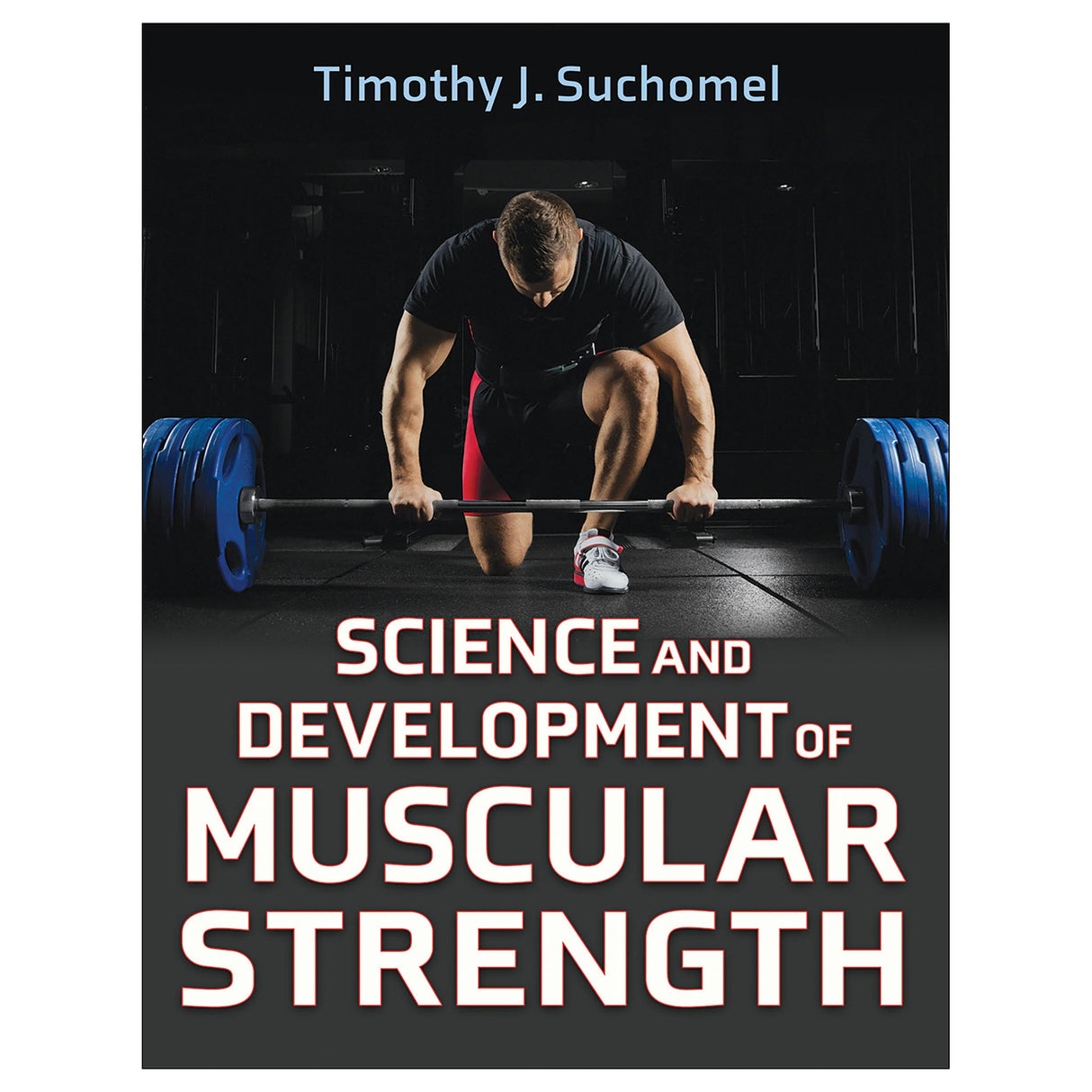Hardback
Science and Development of Muscular Strength
Author: Timothy J. Suchomel
$99.95 CAD
Unit price
/
Unavailable
Hardback
$99.95 CAD
$99.95 CAD
Hardback
Science and Development of Muscular Strength is the ultimate guide for anyone looking to understand, build, and optimize muscular strength for peak performance.
Written by Timothy J. Suchomel, PhD, a leading authority on muscular strength, Science and Development of Muscular Strength eliminates the need to consult multiple resources to understand the evolving definitions of strength as well as its crucial role in athletic success. With over 2,500 references across 12 chapters, this text is the most comprehensive resource on muscular strength.
Designed to be applicable for all levels of knowledge, the book includes helpful features to improve the reading experience:
Science and Development of Muscular Strength is your go-to resource for research-based guidelines and practical recommendations to develop strength.
Earn continuing education credits/units! A continuing education exam that uses this book is also available. It may be purchased separately or as part of a package that includes both the book and exam.
Written by Timothy J. Suchomel, PhD, a leading authority on muscular strength, Science and Development of Muscular Strength eliminates the need to consult multiple resources to understand the evolving definitions of strength as well as its crucial role in athletic success. With over 2,500 references across 12 chapters, this text is the most comprehensive resource on muscular strength.
Designed to be applicable for all levels of knowledge, the book includes helpful features to improve the reading experience:
- Figures that depict the application of strength during different performance tasks
- Tables that identify the key factors of programs designed to maximize muscular strength
- Key Points within each chapter to aid comprehension
- Take-Home Points at the end of each chapter that highlight important content
- Comprehensive subject and author indexes to optimize use as a reference tool
Science and Development of Muscular Strength is your go-to resource for research-based guidelines and practical recommendations to develop strength.
Earn continuing education credits/units! A continuing education exam that uses this book is also available. It may be purchased separately or as part of a package that includes both the book and exam.
Audience
Strength and conditioning professionals working with athletes to maximize muscular strength development. Researchers and scientists studying muscular strength. Chapter 1. Defining Strength
The History of Strength Competitions
Definitions of Strength
The Importance of Strength Within Sport
Redefining Strength
Strength Definition
Chapter 2. Strength-Related Responses and Adaptations to Training
Neuromuscular System
General Adaptation Syndrome
Fitness–Fatigue Paradigm
Timeline of Adaptation
Adaptations to Training
Influence of Training Stimuli on Strength Adaptations
Impact of the Training Year
Detraining
External Stressors
Chapter 3. Mechanisms of Strength
Genetics and Epigenetics (Nature and Nurture)
Fiber Type
Neuromuscular Factors
Neuroendocrine System
Muscle Architecture
Motor Learning and Skill Acquisition
Chapter 4. Principles and Organization of Training
Training Principles
Organization of Training
Chapter 5. Training Methods
Types of Training
Additional Training Methods
Chapter 6. Advanced Training Methods
Relative Strength Levels
Potentiation Complexes
Variable Resistance Training
Accentuated Eccentric Loading
Chapter 7. Program Design
Needs Analysis
Programming Variables
Training Age
Training Year
Overall Training Approach
Chapter 8. Concurrent Training
The Interference Effect
Conditioning Methods
Concurrent Training Programming Considerations
Practical Application
Chapter 9. Measuring Strength
Rationale for Measuring Strength
Strength Testing Considerations
Types of Strength Testing
Combined Assessment Methods
Timing of Testing
Integration of Sport Science and Evidence-Based Practice
Chapter 10. Monitoring and Adjusting Training Loads
Monitoring and Load Adjustment Methods
Motor Learning and Skill Acquisition Monitoring
Additional Considerations for Monitoring and Load Adjustment
Chapter 11. Nutritional Considerations for Muscular Strength
Energy Balance
Macronutrients
Micronutrients
Antioxidants
Hydration
Ergogenic Aids
Periodization of Nutrition
Monitoring Nutrition
Chapter 12. Recovery Consideration for Strength
Recovery Methods
Mental Fatigue and Recovery
The Placebo Effect
Periodization of Recovery
Measuring Recovery
The History of Strength Competitions
Definitions of Strength
The Importance of Strength Within Sport
Redefining Strength
Strength Definition
Chapter 2. Strength-Related Responses and Adaptations to Training
Neuromuscular System
General Adaptation Syndrome
Fitness–Fatigue Paradigm
Timeline of Adaptation
Adaptations to Training
Influence of Training Stimuli on Strength Adaptations
Impact of the Training Year
Detraining
External Stressors
Chapter 3. Mechanisms of Strength
Genetics and Epigenetics (Nature and Nurture)
Fiber Type
Neuromuscular Factors
Neuroendocrine System
Muscle Architecture
Motor Learning and Skill Acquisition
Chapter 4. Principles and Organization of Training
Training Principles
Organization of Training
Chapter 5. Training Methods
Types of Training
Additional Training Methods
Chapter 6. Advanced Training Methods
Relative Strength Levels
Potentiation Complexes
Variable Resistance Training
Accentuated Eccentric Loading
Chapter 7. Program Design
Needs Analysis
Programming Variables
Training Age
Training Year
Overall Training Approach
Chapter 8. Concurrent Training
The Interference Effect
Conditioning Methods
Concurrent Training Programming Considerations
Practical Application
Chapter 9. Measuring Strength
Rationale for Measuring Strength
Strength Testing Considerations
Types of Strength Testing
Combined Assessment Methods
Timing of Testing
Integration of Sport Science and Evidence-Based Practice
Chapter 10. Monitoring and Adjusting Training Loads
Monitoring and Load Adjustment Methods
Motor Learning and Skill Acquisition Monitoring
Additional Considerations for Monitoring and Load Adjustment
Chapter 11. Nutritional Considerations for Muscular Strength
Energy Balance
Macronutrients
Micronutrients
Antioxidants
Hydration
Ergogenic Aids
Periodization of Nutrition
Monitoring Nutrition
Chapter 12. Recovery Consideration for Strength
Recovery Methods
Mental Fatigue and Recovery
The Placebo Effect
Periodization of Recovery
Measuring Recovery











